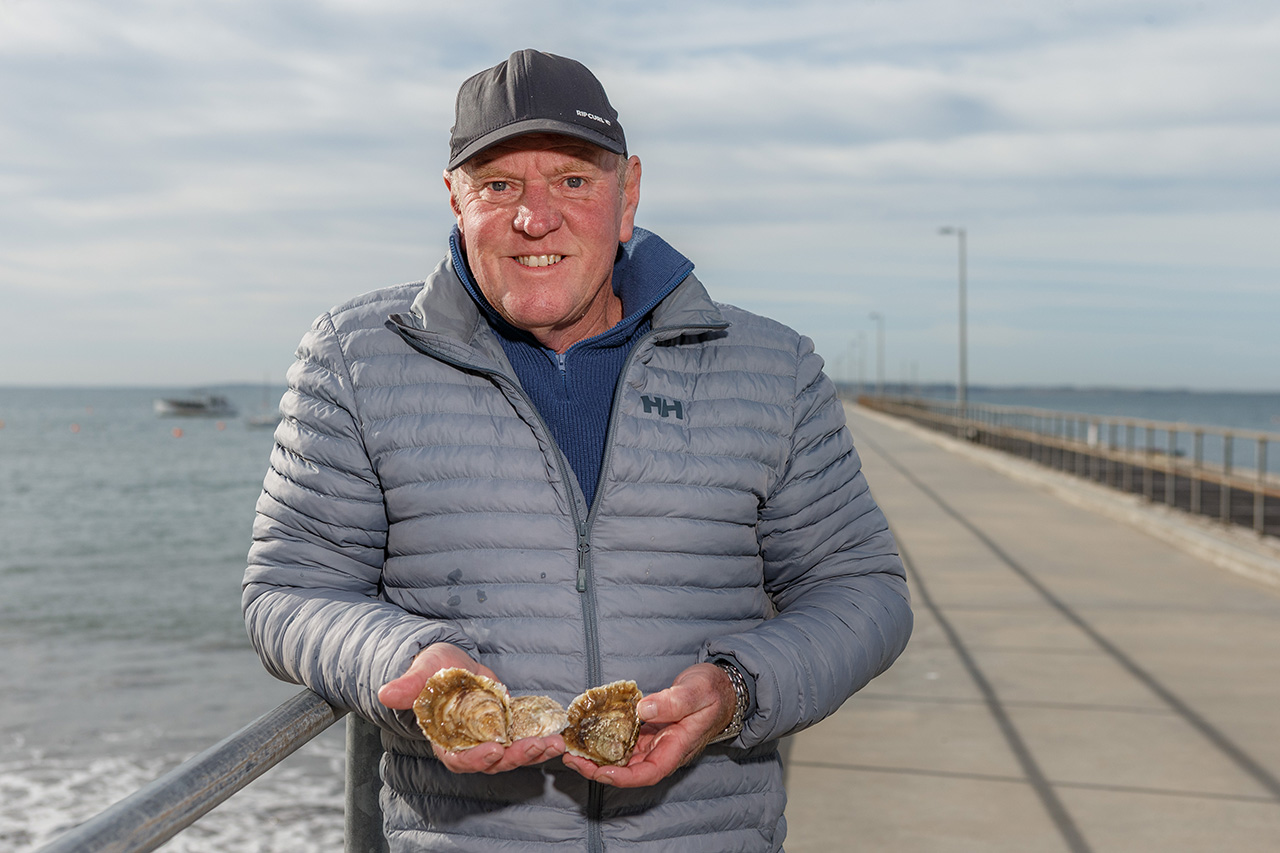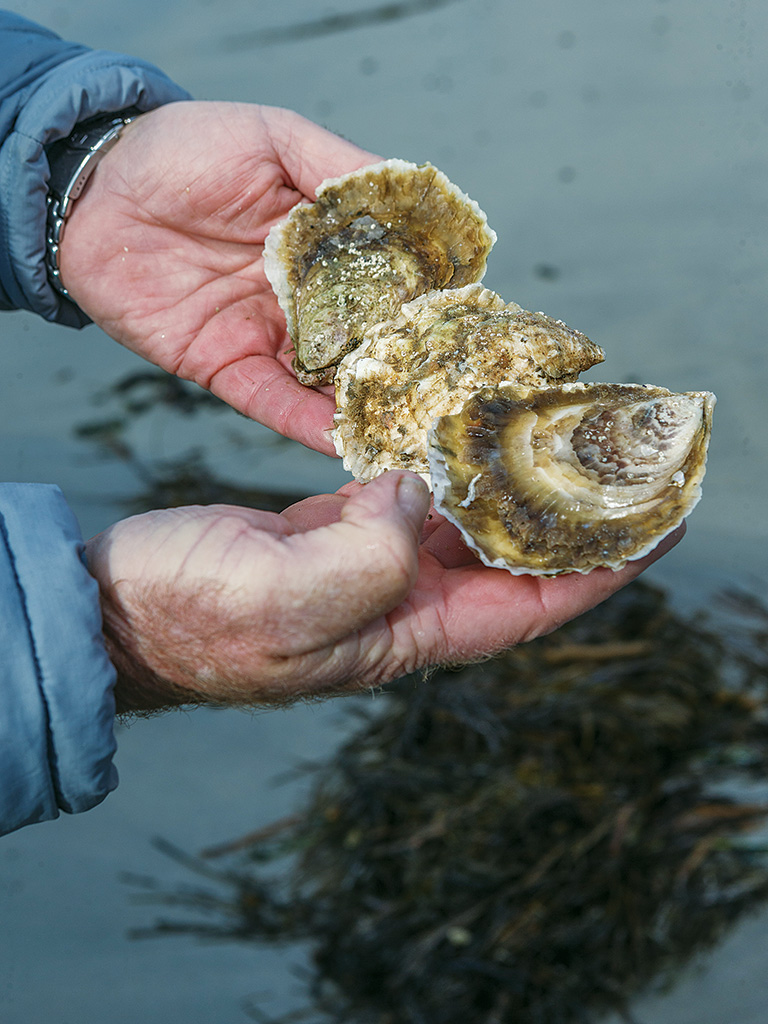
By Fereshteh Nazari Photos Gary Sissons
In the gentle embrace of Flinders Jetty, where the salty breeze carries echoes of sea history and the rhythmic clapping of waves, Steve Cooper manages more than just an Oyster farm. Nestled along the rugged coastline of Victoria’s Mornington Peninsula, Flinders Oysters isn’t merely a business; it’s a demonstration of Steve Cooper’s unwavering dedication to his craft and a profound connection to the sea.
“Flinders Oysters company began out of the ashes of an abalone aquaculture venture,” Steve said. The abalone farm was established back in 1992, and Steve was deeply involved in abalone aquaculture. However, in 2005, a devastating virus swept through the Victorian coast and wiped out the entire company’s stock. This caused Steve and his team to leave aquaculture for about three to four years. Upon returning to the industry, he made an important decision which was to shift from abalone to oyster farming.
In 2014, Steve started Flinders Oysters by using the hatchery they initially had for creating juvenile abalone and converted that into an oyster hatchery. In 2020, the commencement of COVID-19 had a deep impact globally, affecting businesses like Flinders Oysters. With lockdowns in place, Flinders jetty remained closed and income disappeared.
Steve emphasizes that his business has yet to fully recover from the pandemic’s consequences. “It has not stopped right from day one; it has been a continual fight. It’s like a wheelbarrow; if you put it down it won’t go, and if things don’t go your way, then you will have to get up again. We have been hit by so many catastrophes,” he said.
We have been trying to crack the biology of the Angasi oysters
Steve specialises in rare Angasi oysters, which are native to Victoria. Highly sought after, they are flat and round in shape with a stronger, deeper and earthier flavour than pacific and rock oysters and are known as the brother of the prestigious French Belon oyster. However, they are not easy to grow and are slowly decreasing in number due overexploitation. He said, “We have been trying to crack the biology of the Angasi oysters…there are a lot of biological constraints with the species, but we are working through that.”
Unlike the rest of Australia where you can grow multiple oyster types, Victoria has a policy where they only allow the growth of endemic species and rare Angasi oysters fall into this category. This limits the options available for farmers like Steve, hence making it more challenging as endemic species are “the hardest to grow.” Filter feeding from the magnificent waters of Western port, their unique growing system ensures the highest quality, rare Angasi oysters. “And if you fail, you have nothing to fall back on,” Steve said.
Steve has a distinct recommendation for enjoying oysters: he suggests that they be consumed ‘natural’,’ ideally paired with a good wine such as sparkling rosé or champagne. He said, “I often tell people if you are going to cover them with bacon and sauce, then you may as well go and save your money and buy a pie.”

Working with marine life, Steve has expressed his concerns about the condition of the waters. He emphasizes that people need to pay attention to what they put into the waters and its impacts, as, “you’re never going to get your fish stock back.”
Looking toward the future, Steve has ambitious plans for his business, saying that, “there’s not enough time in my life to do it all.”
Steve and his team are marine farmers who have a broader vision for the future of Flinders Oysters. He explained that they are planning to expand their range of species, starting with kelp. He expressed his admiration for kelp and sponge production, acknowledging their status as amazing creatures. Steve believes producing kelp is beneficial because it increases biomass. He mentioned his plans to expand biomass through kelp and seaweed production, as well as developing bioplastic farming equipment.
Already conscious of his current practices, Steve has a desire to enhance sustainability by ensuring his equipment is made of bioplastics to minimize environmental impact. Reflecting on their journey, Steve said, “Over the past 30 years, this business has been a labour of love. We need to keep improving because if we don’t, we won’t succeed.”
flindersoysters.com
